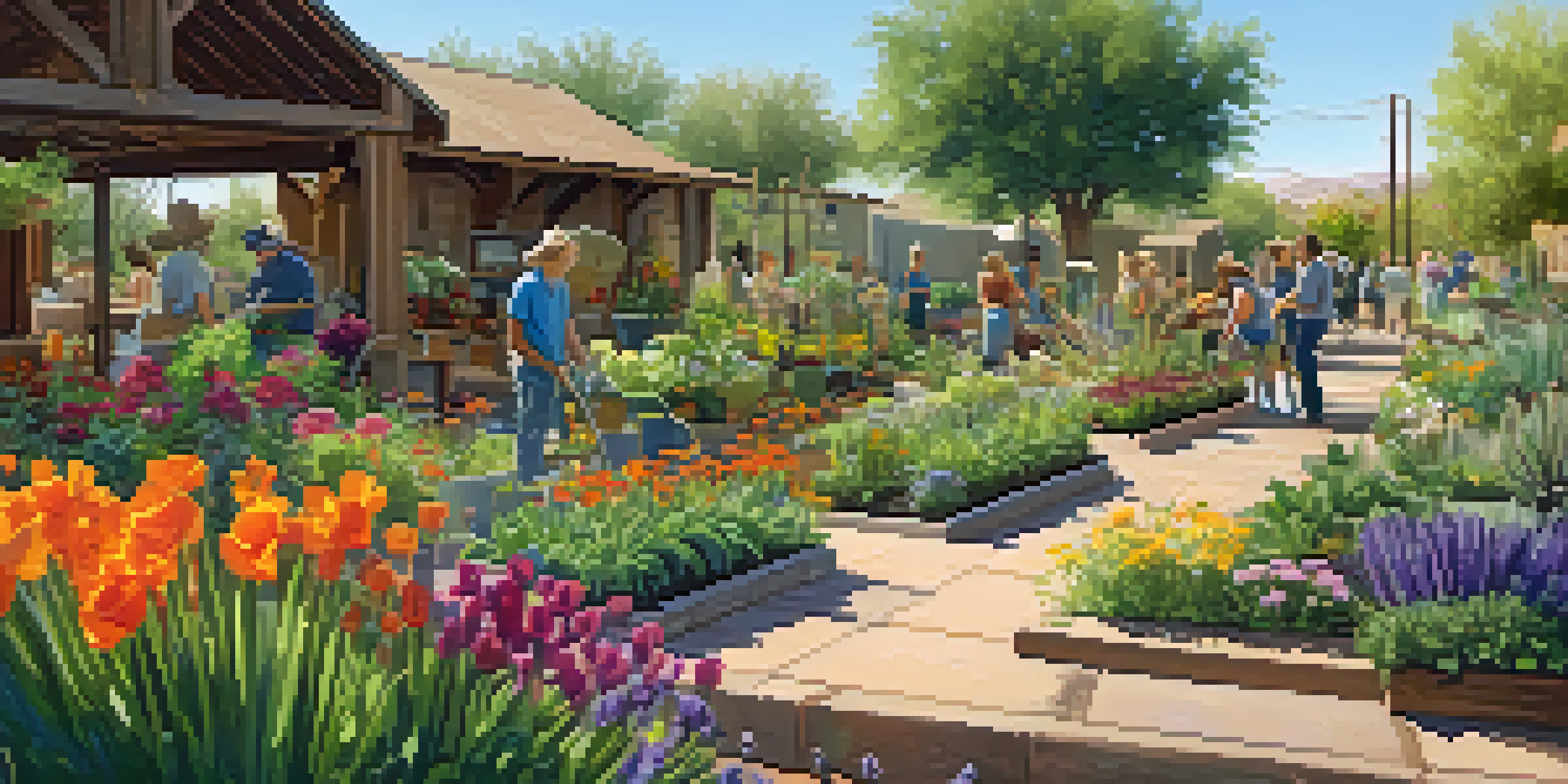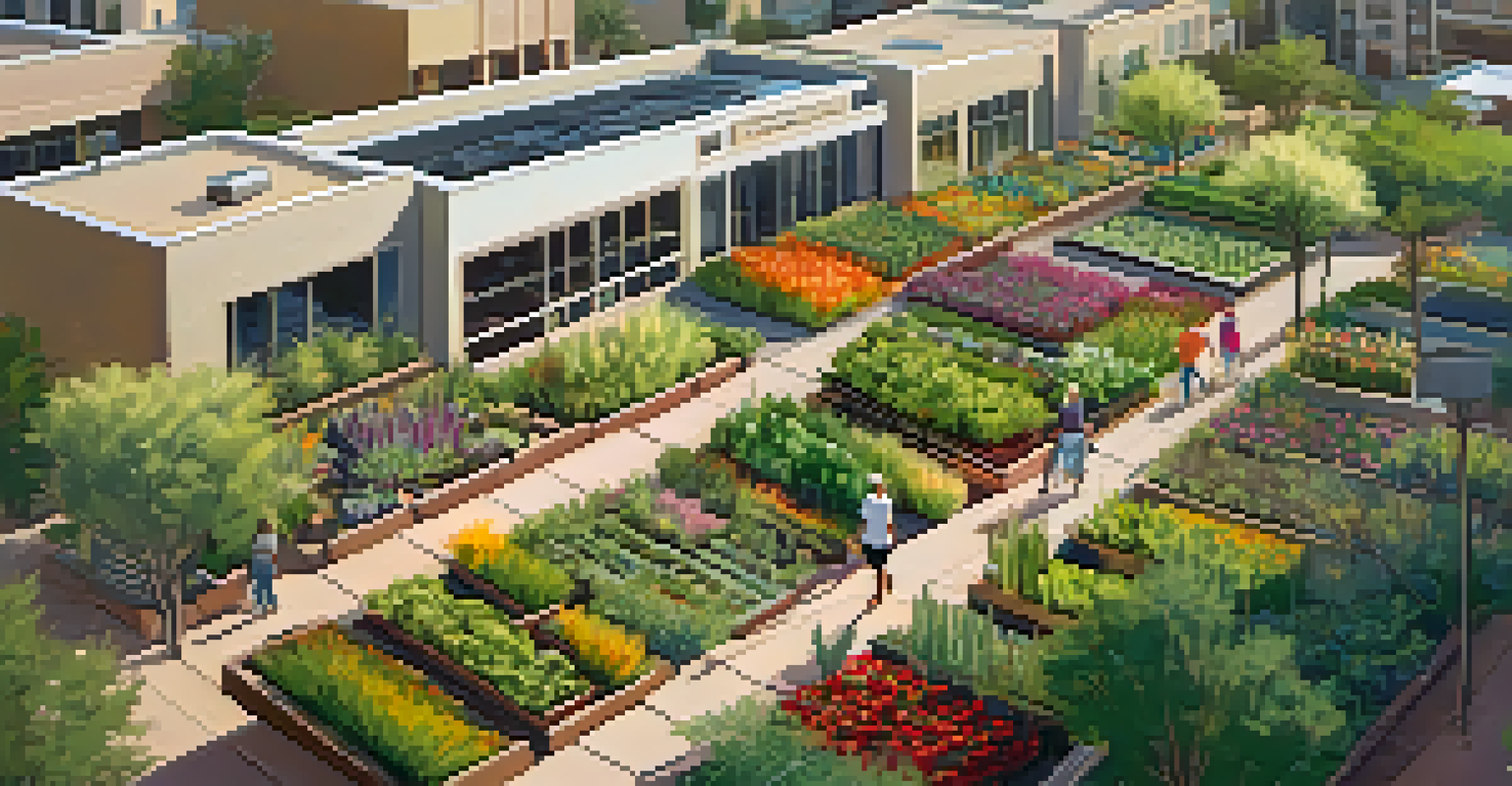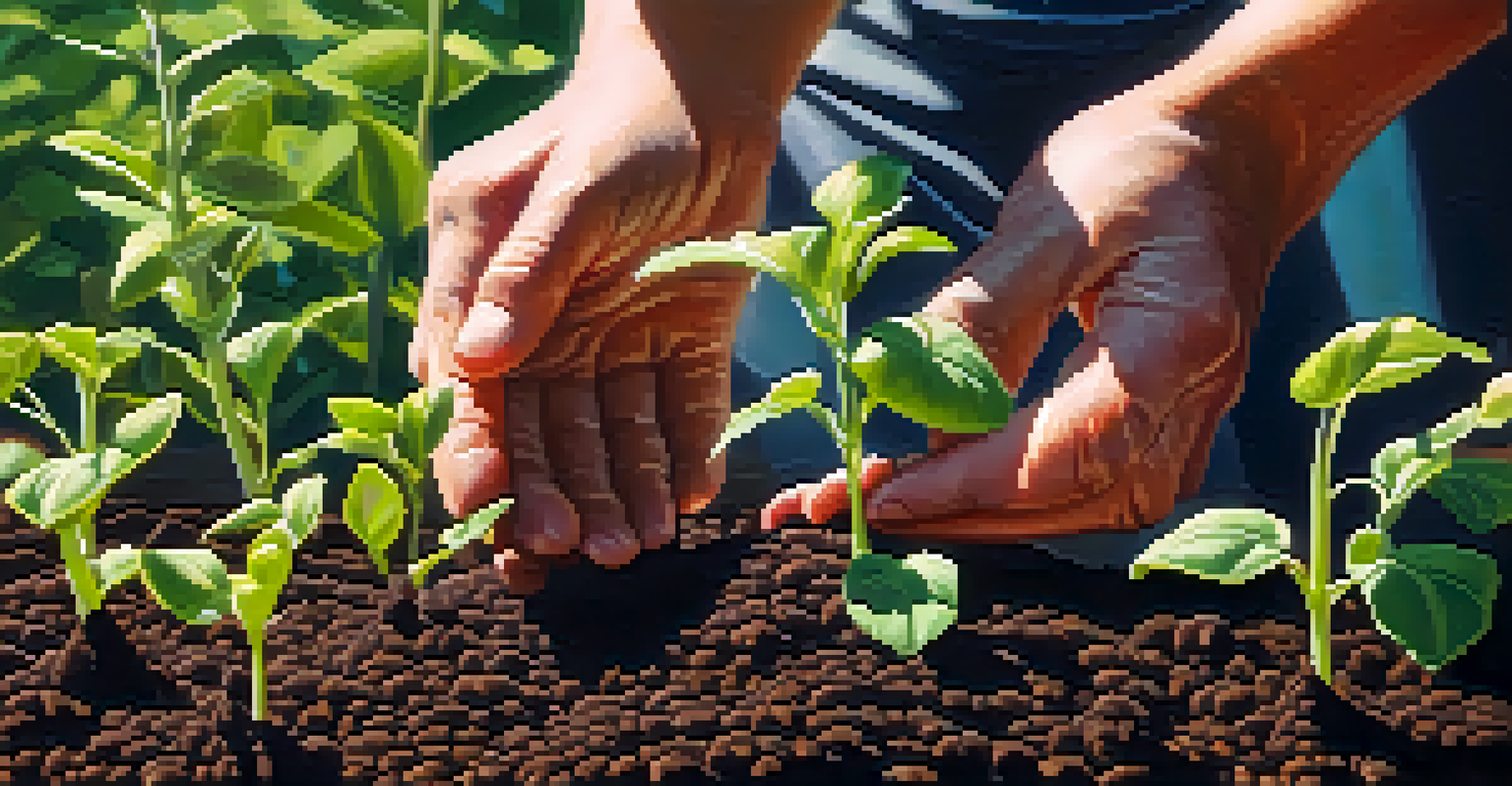Scottsdale's Urban Gardening: Connecting Communities Through Nature

The Rise of Urban Gardening in Scottsdale
In recent years, Scottsdale has seen a surge in urban gardening, transforming empty lots and backyards into lush green spaces. This movement not only beautifies the city but also promotes sustainability and healthy living. As more residents embrace gardening, they’re discovering the numerous benefits that come with nurturing plants right in their neighborhoods.
To plant a garden is to believe in tomorrow.
Urban gardening isn’t just about growing food; it’s about cultivating relationships. Neighbors come together to share tips, seeds, and even harvests, creating a sense of camaraderie. Through these shared experiences, urban gardening becomes a bridge that connects individuals from diverse backgrounds.
Moreover, this trend encourages local businesses and farmers' markets, further fostering community spirit. As people buy and sell homegrown produce, they’re not just exchanging goods but also building bonds over shared interests and values.
Benefits of Urban Gardening for Communities
Urban gardening provides a myriad of benefits, especially for communities looking to strengthen their ties. For starters, it serves as a great way to promote food security, ensuring that fresh produce is accessible to all. This is particularly important in urban settings where grocery stores may be scarce or lack variety.

Additionally, these green spaces can significantly improve mental health. Gardening has been shown to reduce stress and anxiety levels, creating a peaceful retreat in the hustle and bustle of city life. As community members engage in gardening, they often find solace and joy in the simple act of nurturing plants.
Urban Gardening Strengthens Communities
Urban gardening fosters connections among residents, creating a sense of camaraderie and shared purpose.
Importantly, urban gardens also play a role in environmental sustainability. They contribute to biodiversity, support pollinators, and help mitigate urban heat. By creating these small ecosystems, communities are actively participating in the larger movement towards a healthier planet.
Creating Community through Shared Gardening Spaces
Community gardens are a cornerstone of Scottsdale's urban gardening initiative. These shared spaces provide residents with the opportunity to grow their own food, even if they lack private outdoor space. By gardening together, individuals forge connections that transcend age, culture, and background.
The best time to plant a tree was twenty years ago. The second best time is now.
These gardens often host workshops, events, and social gatherings, further enhancing community involvement. For example, families might come together for a potluck after a harvest, sharing dishes made from their homegrown produce. Such events not only celebrate the fruits of their labor but also strengthen social bonds.
Moreover, community gardens can serve as educational platforms. Local schools often partner with these spaces to teach children about the environment, nutrition, and the importance of sustainable practices, creating a ripple effect of knowledge and awareness throughout the community.
A Platform for Sustainability Education
Urban gardening initiatives in Scottsdale are also pivotal in educating residents about sustainable practices. Workshops on composting, organic gardening, and water conservation empower community members to adopt eco-friendly habits. These educational opportunities foster a culture of sustainability that can extend beyond the garden.
By learning about sustainability, residents can make informed choices in their daily lives, from reducing waste to choosing local produce. This knowledge encourages a collective responsibility towards the environment, making sustainability a community effort rather than an individual task.
Promoting Sustainability and Education
These gardening initiatives serve as platforms for educating residents about sustainable practices and environmental responsibility.
Furthermore, as more people become environmentally conscious, they often advocate for policies that promote green spaces and sustainable practices within the city. This grassroots movement can influence local government, leading to more support for urban gardening initiatives and environmental programs.
The Role of Local Organizations in Urban Gardening
Local organizations play a crucial role in nurturing Scottsdale's urban gardening scene. They provide resources, funding, and support for residents looking to start their own gardens. By connecting individuals with tools, knowledge, and other gardeners, these organizations empower communities to take ownership of their green spaces.
Additionally, these groups often organize events that bring together gardeners, such as seed swaps and volunteer days. These gatherings not only strengthen community ties but also support the collective mission of promoting urban gardening across Scottsdale.
Through collaboration with schools, businesses, and local government, these organizations help create a sustainable network that supports and advocates for urban gardening. Their efforts ensure that this movement continues to thrive, benefiting both the environment and the community.
Challenges Faced by Urban Gardeners
While the advantages of urban gardening are plentiful, there are challenges that gardeners in Scottsdale encounter. Limited space in urban areas can make it difficult for residents to establish gardens, especially in densely populated neighborhoods. This often leads to competition for available land, making community collaboration essential.
Additionally, not all residents are familiar with gardening practices, which can lead to frustration or failure. To combat this, community workshops and mentorship programs are crucial. By pairing novice gardeners with experienced ones, knowledge can be shared and confidence built.
Overcoming Urban Gardening Challenges
Despite the benefits, urban gardeners face challenges like limited space and zoning laws, requiring community collaboration and support.
Lastly, urban gardeners often face issues related to zoning laws and regulations that can hinder their efforts. Advocating for more supportive policies is essential to ensure that urban gardening can flourish and remain accessible to all residents.
Future of Urban Gardening in Scottsdale
The future of urban gardening in Scottsdale looks promising as more residents recognize its benefits. Initiatives aimed at expanding community gardens and supporting local agriculture are gaining traction. As awareness grows, so does the involvement of local businesses, which often seek to align themselves with sustainable practices.
Furthermore, advancements in technology are making urban gardening more accessible. Innovations such as vertical gardening systems and hydroponics allow for gardening in even the smallest of spaces. These developments ensure that everyone, regardless of their living situation, can partake in the joys of growing their own food.

Ultimately, urban gardening fosters a sense of pride and responsibility among residents. As communities continue to grow and evolve, the bond formed through gardening will play a vital role in shaping a connected, sustainable Scottsdale.